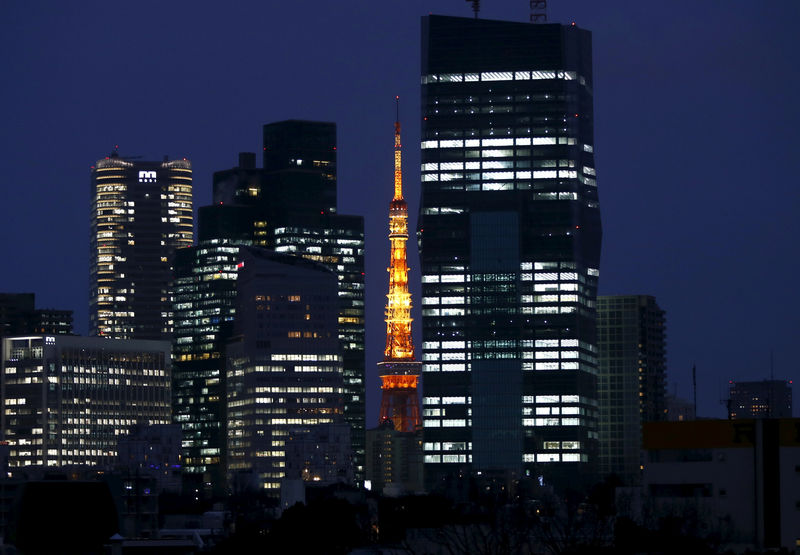(Bloomberg) -- Japan’s record economic contraction last quarter was slightly worse than initially estimated, according to revised figures that underscore the challenge facing Prime Minister Shinzo Abe’s replacement as the country tries to dig itself out of its coronavirus slump.
Gross domestic product shrank an annualized 28.1% from the previous quarter in the three months through June, worse than the initial estimate of a 27.8% fall, the Cabinet Office reported Tuesday. Economists had forecast a 28.5% contraction.
A separate report showed declines in household spending steepened again in July to 7.6% below last year’s level.
Key Insights
- Confirmation of Japan’s biggest GDP slide in records going back to 1955 comes as the ruling party prepares to pick a new prime minister next week. Shinzo Abe, the country’s longest-serving premier, last month announced his resignation due to health issues, leaving Japan with less certain leadership to chart a recovery.
- The Bank of Japan is likely to raise its economic assessment at next week’s meeting to indicate that Japan’s slump has bottomed, without expressing optimism about the outlook, people familiar with the matter said. Still, BOJ officials see little need to take further policy action now because financial markets are stable and companies have access to credit, the people said.
- Abe’s most likely successor, longtime aide Yoshihide Suga, is a continuity pick who says he wants stick to the Abenomics path that includes massive monetary stimulus and a flexible spending approach, but would also take more action if needed to save jobs.
- Analysts see GDP rebounding about 13% this quarter, not enough to make up for three straight quarters of contraction. Bloomberg Economics argues the economy may never regain its pre-pandemic size because the crisis has further delayed critical reforms needed before Japan’s shrinking population causes long-term falls in growth.
What Bloomberg’s Economist Says
“We expect a return to growth in 3Q. But it is still on track for a deep slump for the full year, even with massive policy support from the government and central bank.”
--Yuki Masujima, economist
Click here to read more.
Get More
- Business investment fell 4.7% from the previous quarter, revised down from an initial estimate of -1.5%.
- A separate report showed cash earnings dropped 1.3% in July from a year earlier. Economists had predicted a 1.5% decrease.
- Adjusted for inflation, wages slid 1.6%. Analysts projected a 1.9% decline.
(Adds details on wages.)
©2020 Bloomberg L.P.
